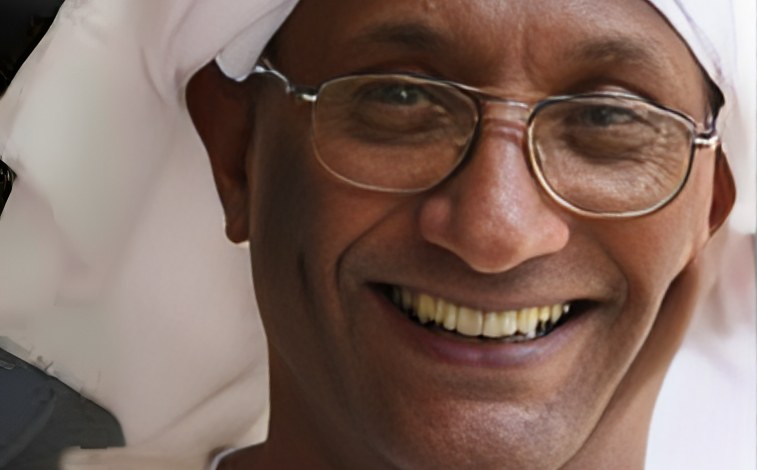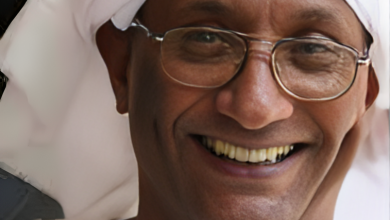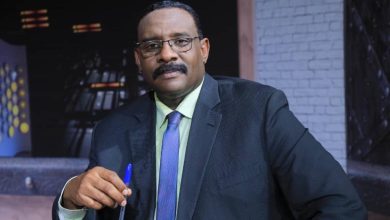Opinion
Absence of the Sudanese Government from Geneva: Those with a Government Do Not Wander Aimlessly (Part 1 of 2)

By Abdullah Ali Ibrahim
The U.S. Special Envoy to Sudan, Tom Perriello, hinted that remnants of the old regime were behind the Armed Forces’ refusal to attend the Geneva conference. This implies a distrust of the army on one hand and an overestimation of the influence of these remnants on the other.
The Armed Forces declined to accept the invitation to attend the Geneva conference, which was organized last Wednesday by the United States and Saudi Arabia. The conference aimed to bring together the army and the Rapid Support Forces (RSF) for negotiations that would fully cease violence, facilitate the delivery of humanitarian aid to those affected, and establish a mechanism to verify the implementation of any agreements made. After the Armed Forces refused to attend the Geneva conference, U.S. Special Envoy to Sudan, Tom Perriello, summarized the conference’s objective as the initiation of a process to cease hostilities, rather than the start of formal ceasefire negotiations, focusing instead on dialogues that would be held between countries and international organizations seeking to bring the two sides to the negotiating table.
The Armed Forces put forth conditions that they wanted to be agreed upon before attending the Geneva negotiations. They insisted that the agreements reached at the Jeddah conference in May 2023 regarding the cessation of hostilities and humanitarian aid be the basis for the Geneva talks. Moreover, they did not favor moving the negotiations from Jeddah to Geneva. Additionally, they insisted that their delegation represent the Sudanese government as a whole, not just the Armed Forces.
Many viewed the army’s refusal to participate in the negotiations as foot-dragging, indirectly suggesting they were under the influence of remnants of the old regime, the supporters of the former regime. They saw the army’s absence as a missed opportunity to alleviate the horrors of war for the Sudanese people.
Certainly, Geneva was an awaited opportunity to alleviate the suffering of the Sudanese. However, we can say that the newspapers were not closed, nor were the pens broken as a result. What was demanded by the Armed Forces before the negotiations, and what was pursued during and after, were equally strong. A wise Sudanese man once said that there are words spoken outside the court and other words spoken before the judge. It is the words outside the court that lead to better outcomes within it.
The objections of the Armed Forces to the pre-negotiation procedures raise issues that should be considered, not only for the army’s benefit but also to ensure a certain and decisive end to the war.
One wonders why Perriello was unsuccessful in bringing the army to the negotiations, considering that in the past he had made observations worthy of attention. For instance, he once remarked that the war in Sudan was a tragic conflict between two generals for power. He also noted that the army is a historical and ancient institution, celebrating its 70th anniversary last Wednesday. If Perriello had paused to consider the army’s long history, he might have understood that General Burhan’s leadership of the army follows a lineage of 70 years of commanders, a legacy that cannot be said for General “Hemedti,” who is the first and possibly the last commander of the Rapid Support Forces.
Tradition is a powerful force. The South African novelist J.M. Coetzee wrote that professionalism alone prevented South Africa’s security forces from exterminating the “comrades,” the rebellious young black people. Similarly, Perriello once mentioned in a meeting with journalists in February 2024 something that one wishes he had considered in the arrangements for the Geneva conference. It seemed that the army’s refusal to attend the conference pained him, leading him, contrary to what one would expect from a mediator like him, to decide that the meeting would proceed with whoever attended. He had previously told journalists six months earlier that the situation on the ground did not allow the army to go to negotiations, hinting at the importance of the army achieving a victory on the ground. He said, “The army needs to sit at the table with its head held high after adjusting the situation on the ground.”
Shawgi Abdelazim, who reported the details of the press meeting, added that the situation of the Sudanese army had deteriorated further since that meeting in February 2024, with the RSF taking control of new states and keeping military garrisons under heavy siege. One wishes that Perriello had considered this mature statement about the army and allowed it to maintain its dignity in Geneva. One also hopes that the conversation between U.S. Secretary of State Antony Blinken and Burhan last Wednesday had cleared the way for the army to participate in the Geneva conference.
It is difficult to understand why the request of the Armed Forces for the Sudanese government to represent them in Geneva was not accepted. What is the wisdom in excluding the government, the symbol of the state, in Sudan by international forces that have struggled to understand the phenomenon of the failed and collapsing state?
One may ask, isn’t preserving what remains of the Sudanese state until the war is ended a long-term plan that should not be overshadowed by the political considerations of the day, as we shall see? Therefore, the demand of the Armed Forces for recognition as the government is not as “foolish” as journalist Rasha Awad suggested. She saw it merely as a conspiracy by the remnants of the old regime “against the negotiations under the banner of a government delegation, despite the absence of a government since October 25, 2021, with only caretaker ministers and cells of the old regime remaining.”
It is hard for those who claim that Sudan has lacked a government since that day to accept the reality that they have, knowingly or not, agreed with the RSF, which claimed to have risen to overthrow the government of the state established in 1956, as represented by the government of General Abdel Fattah al-Burhan. This claimant, having canceled the government, has preemptively awarded victory to the RSF, even though it still needs more time to eliminate the government entirely. Not to mention the fact that those who threw the government in the trash bin have strengthened the RSF’s position on this issue, as expressed by one of its advisors on July 30th. The advisor stated that they would negotiate with the army and would not allow any other Sudanese entity, such as the Ministry of Foreign Affairs, to participate in these negotiations or efforts to end the war.
This RSF position on the government is old and not surprising, coming from a group that emerged to overthrow it. Indeed, the RSF succeeded in the second Jeddah negotiations in excluding Ambassador Omar Sidiq from the sessions, claiming that he represented a government in Sudan, while they came to negotiate with the army. Now, the RSF advisor repeats the same claim, rejecting the interference of the Ministry of Foreign Affairs in the negotiations.
Abandoning the government, no matter how bad it may be, is akin to a “bad omen,” as the Sudanese say about unfortunate news. It goes without saying that wherever a government exists in Sudan today, it has fulfilled its duties to the best of its ability. It even managed to organize the pilgrimage for Sudanese pilgrims this year, not to mention its efforts in education, health, ports, passports, and diplomatic relations. The scarcity of resources has not prevented the humanitarian organization from fulfilling its duties in areas under its control, including receiving the flood of people fleeing the RSF.
Citizens in areas controlled by the “de facto government,” as it is called, enjoy security as much as possible in a brutal war environment, something that cannot be said for areas under RSF control. Even Mohamed Hamdan Dagalo (Hemedti), the leader of the RSF, acknowledged the security breakdown in those areas in his address to Sudanese people about the participation of his forces in the Geneva negotiations. He said that he has been fighting on two fronts: the Armed Forces and the “outlaws” who have terrorized the people. He said that while he defeated the remnants of the old regime, the “outlaws” have exhausted them in battles that they are still fighting with determination and seriousness. Consequently, he decided to establish a special force in the areas under his control to protect civilians and provide comprehensive security for people to return to their homes with dignity. This is the second time he has announced the creation of a mechanism to protect civilians from the so-called “outlaws.” And lawlessness is the highest stage of state disintegration.
To be continued…



